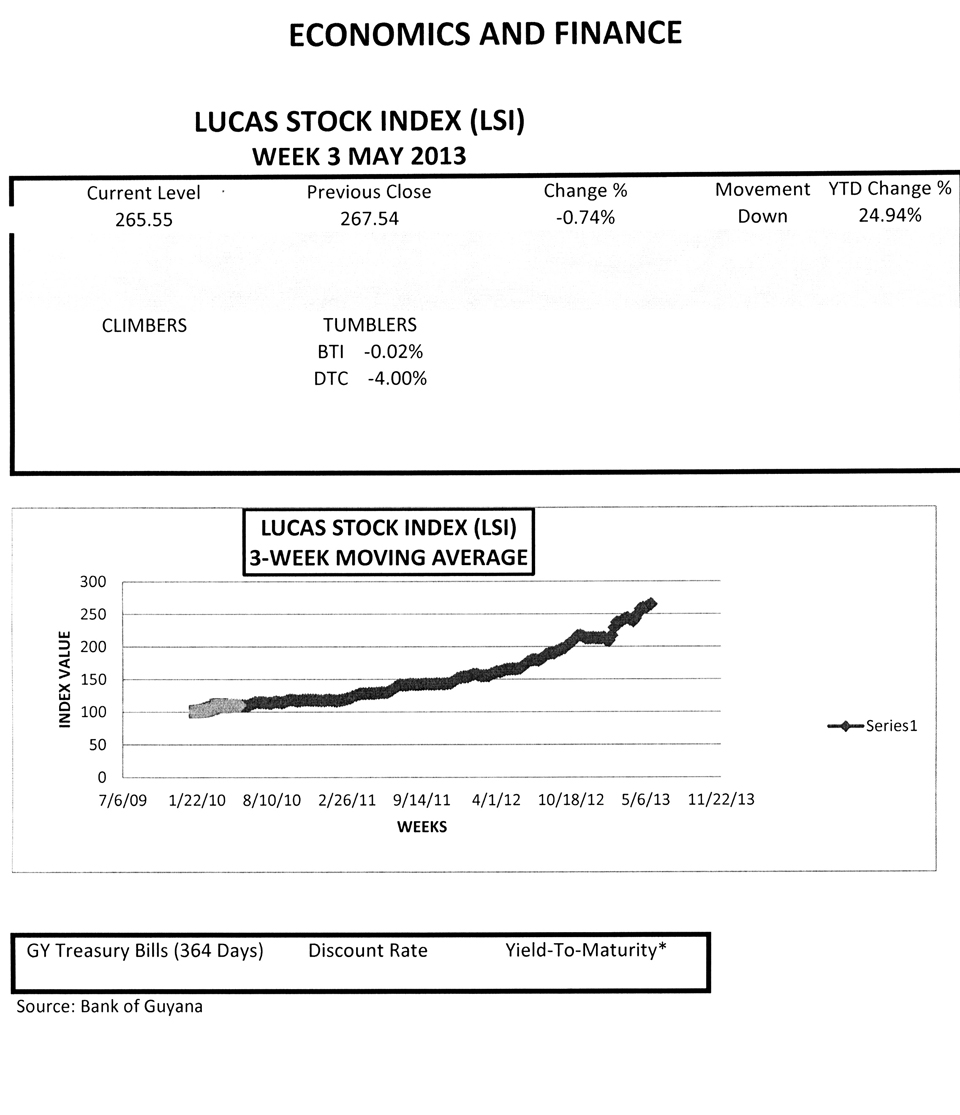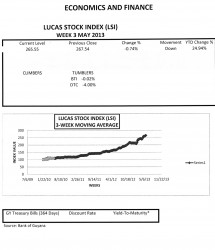Reform
Last year, the administration introduced a bill aimed at reforming the telecommunications industry in Guyana. The proposed law is still to gain parliamentary approbation, and if and when that occurs, it would most likely alter the telecommunications market and have major implications for the delivery of telecommunication services in Guyana. The reform of the telecommunications sector in Guyana means big changes for GT&T and an opportunity for companies lying like predators in the wild waiting for a weak animal to pass by. GT&T stands to lose its exclusive license to provide domestic fixed services and international voice and data services in and out of Guyana. This matter weighs heavily on the mind of Atlantic Tele-Network (ATN), the parent company of GT&T, which has been trying to get the current administration to allow it to exercise its right of renewal of its exclusive license for another 20 years. On December 15, 2010, the administration at the time provided GT&T with a conditional extension of its exclusive license that would expire with the passage of the telecommunication reform law. The likelihood that the law would pass eventually and the feeling of helplessness associated with the expected outcome leave GT&T, and by inference ATN, in a state of uncertainty regarding its future in Guyana.
ATN is a US-based company that obtained a license in December 1990 from the Government of Guyana to operate domestic fixed and international voice and data services in the country. Broadly speaking, ATN, through its GT&T subsidiary, is entitled to provide public telephone, radio telephone, and pay telephone services; domestic fixed services (both wireline and wireless); international voice and data services; sale of advertising in telephone directories; and switched or non-switched private line service. The bundle of services is currently delivered under a segment of its business called “International Integrated Telephony”. At December 2012, GT&T had an estimated 154,000 access lines in service. It also had about 279,000 subscribers to its wireless service and 29,000 internet customers.
Exclusive rights
The risk of losing the exclusive rights to deliver telephone services in Guyana continues to weigh heavily on the mind of ATN. Only one year ago, ATN looked as if it had positioned itself to absorb the blows from the loss of its exclusive rights through the combined use of its business and corporate strategies. A key business strategy of ATN is to target small, rural or underserved markets where competition is limited and then use its management strength and technical and financial expertise to leverage the value-added opportunities of the markets. The business strategy is bolstered by a corporate strategy that pursues growth through acquisition.
The corporate strategy of growth through acquisition has been a principal tool in the advancement of ATN. It is the way ATN has managed to diversify its operations and to reduce its reliance on GT&T. However, ATN started employing that strategy aggressively in 2005 from which time it acquired several companies in the US and Caribbean markets. Through a series of such moves which included the acquisition of the assets of Alltel Corporation from Verizon Wireless in 2010, ATN looked poised to escape the worst of any damage from the loss of its exclusive license. It had reduced its reliance on GT&T significantly, having at one time or another obtained between 47 to 96 per cent of its revenue from GT&T. The US Wireless segment took over as lead contributor to the revenues of ATN by 2011. In 2012, this segment of the business contributed 77 per cent of the revenue generated by the company with Alltel alone contributing 63 per cent of the total. GT&T contributed about 14 per cent of the revenue.
Fractured market
ATN, however, might have bitten off more than it could chew with the purchase of the Alltel assets. The Alltel acquisition left if facing a fractured national and regional US market that could only be served efficiently with the help of competitors or the building of its own wireless network platform. ATN made the effort, but it might have been unprepared for the challenge. The company was unable to integrate the Alltel assets with those of its own and maintain quality service. As a consequence, its customer base shrank by 30 per cent in the two plus years that it held the acquired US wireless operations, falling from 800,000 subscribers to 588,000 at the end of last year. ATN does not believe that it would be able to recapture the market share that made the acquisition of the Alltel assets attractive in the first place. Consequently, it decided to enter into a Purchase Agreement with AT&T Mobility LLC in January this year to rid itself of the burdensome Alltel responsibilities.
Lose income
The move, while making a handsome profit for ATN, returns it to the clutches of the Guyana Government. ATN will not only lose income from sale of its retail wireless operations; it will also lose sales from its wholesale operations that support its retail wireless business in the USA. The scaling down of the US operations would restore GT&T’s importance to the company as a source of revenue. ATN anticipates that once the sale of its Alltel assets is complete, the share of its US operations to its consolidated income would decline to 35 per cent and the contribution of GT&T would rise to equal it. As added evidence of GT&T’s renewal, all other parts of ATN’s operations would account for a combined 30 per cent of consolidated income. ATN maintains in its report filed with the Securities and Exchange Commission of the USA that the loss of its exclusive right will drastically reduce its investment in GT&T.
Pressure
ATN also could face added pressure from the court ruling last year that question the validity of GT&T’s exclusive license to provide international voice and data service in Guyana and the applicability of that license to telecommunications services using Voice over Internet Protocol (‘‘VoIP’’). If the decision stands, not only would it open the floodgates for the bypass of international telephone services from GT&T, it would also weaken its bargaining position with respect to compensation for the loss of exclusivity. In addition, it could feel pressure from its new minority partner, Hong Kong Golden Telecom Company Limited (HKGTC) to whom the Government of Guyana relinquished all of its shareholder rights in November 2012. One has to assume that HKGTC purchased the shares with the intention of seizing any opportunities that arise in the domestic telecommunications market. Should ATN decide to pull out, HKGTC would be waiting in the wings to snap up the remainder of the company.







